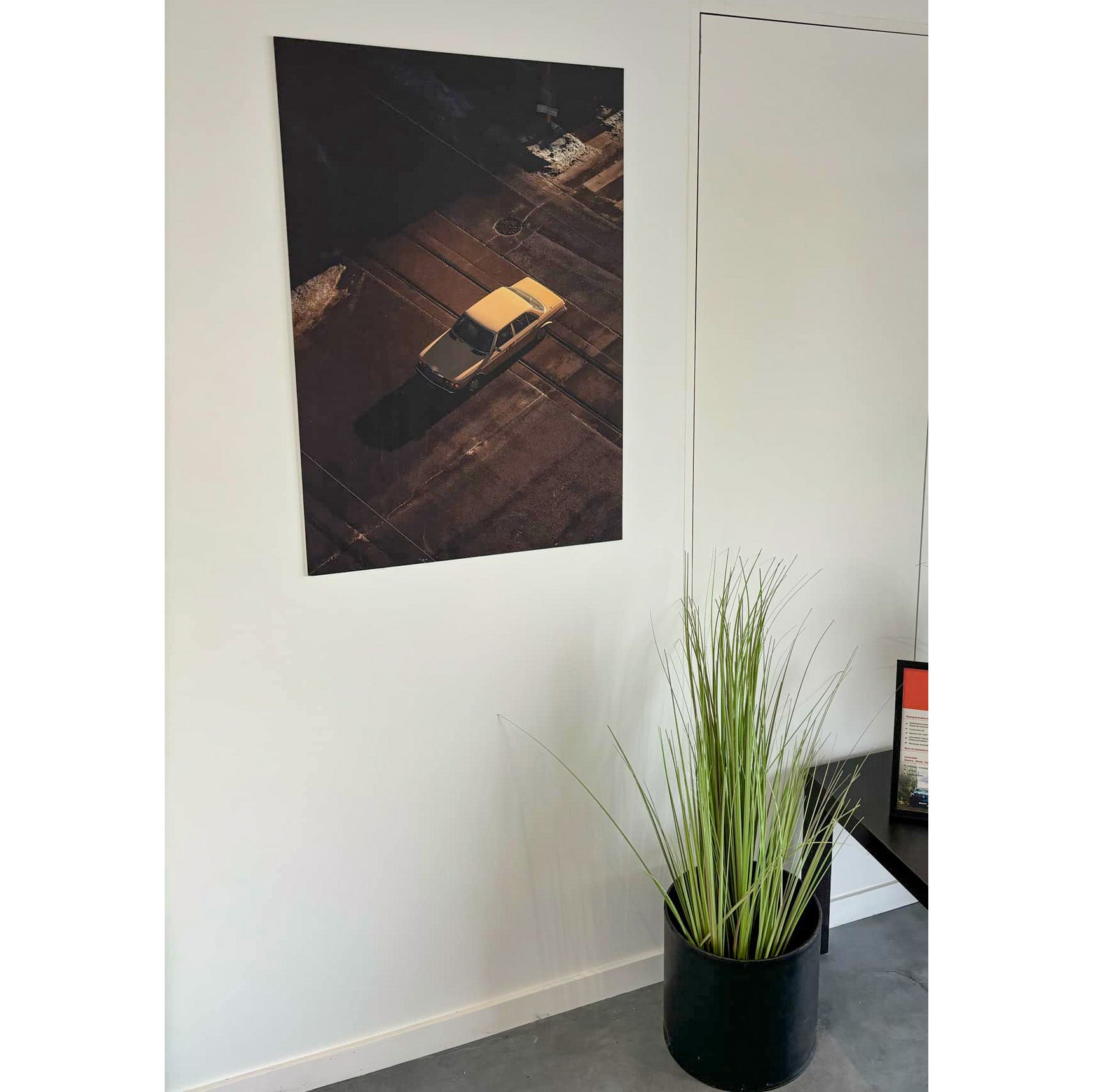Art print | Cochin White Rooster - Harrison Weir


View from behind

Frame (optional)
Harrison Weir's "White Cochin Rooster" is an iconic piece that transcends the simple realm of animal painting. This artwork embodies the beauty and majesty of a rooster, representing not only an animal but also a symbol of pride and vitality. The finesse of the details and the richness of the colors capture the very essence of this bird, while inviting the viewer to immerse themselves in a universe where nature and art meet harmoniously. Through this art print, the artist manages to evoke a deep emotion, a connection with the living that still resonates today.
Style and uniqueness of the artwork
Harrison Weir, known for his remarkable talent in depicting animals, deploys in "White Cochin Rooster" a style that combines realism and sensitivity. Every feather of the rooster is rendered with impressive meticulousness, demonstrating attentive observation and respect for nature. The nuances of white and cream, subtly enhanced by touches of color, bring this majestic bird to life, while the background, often minimalistic, highlights the imposing silhouette of the rooster. This piece stands out for its ability to capture a moment of grace, where the movement and posture of the animal seem frozen in time, inviting the viewer to appreciate the ephemeral beauty of life.
The artist and his influence
Harrison Weir, a 19th-century artist, is recognized for his commitment to representing the animal world with rare authenticity. His passion for wildlife, combined with a keen sense of aesthetics, allowed him to carve out a unique place in art history. Weir inspired many contemporary artists, redefining the codes of animal painting and paving the way for bolder explorations of nature. His legacy endures through works that continue to fascinate and move, bearing witness to a time when art and nature were closely intertwined. By paying tribute to the beauty of animals, Weir also contributed to raising public awareness about the need to preserve wildlife, a concern still relevant today.

Matte finish

View from behind

Frame (optional)
Harrison Weir's "White Cochin Rooster" is an iconic piece that transcends the simple realm of animal painting. This artwork embodies the beauty and majesty of a rooster, representing not only an animal but also a symbol of pride and vitality. The finesse of the details and the richness of the colors capture the very essence of this bird, while inviting the viewer to immerse themselves in a universe where nature and art meet harmoniously. Through this art print, the artist manages to evoke a deep emotion, a connection with the living that still resonates today.
Style and uniqueness of the artwork
Harrison Weir, known for his remarkable talent in depicting animals, deploys in "White Cochin Rooster" a style that combines realism and sensitivity. Every feather of the rooster is rendered with impressive meticulousness, demonstrating attentive observation and respect for nature. The nuances of white and cream, subtly enhanced by touches of color, bring this majestic bird to life, while the background, often minimalistic, highlights the imposing silhouette of the rooster. This piece stands out for its ability to capture a moment of grace, where the movement and posture of the animal seem frozen in time, inviting the viewer to appreciate the ephemeral beauty of life.
The artist and his influence
Harrison Weir, a 19th-century artist, is recognized for his commitment to representing the animal world with rare authenticity. His passion for wildlife, combined with a keen sense of aesthetics, allowed him to carve out a unique place in art history. Weir inspired many contemporary artists, redefining the codes of animal painting and paving the way for bolder explorations of nature. His legacy endures through works that continue to fascinate and move, bearing witness to a time when art and nature were closely intertwined. By paying tribute to the beauty of animals, Weir also contributed to raising public awareness about the need to preserve wildlife, a concern still relevant today.









